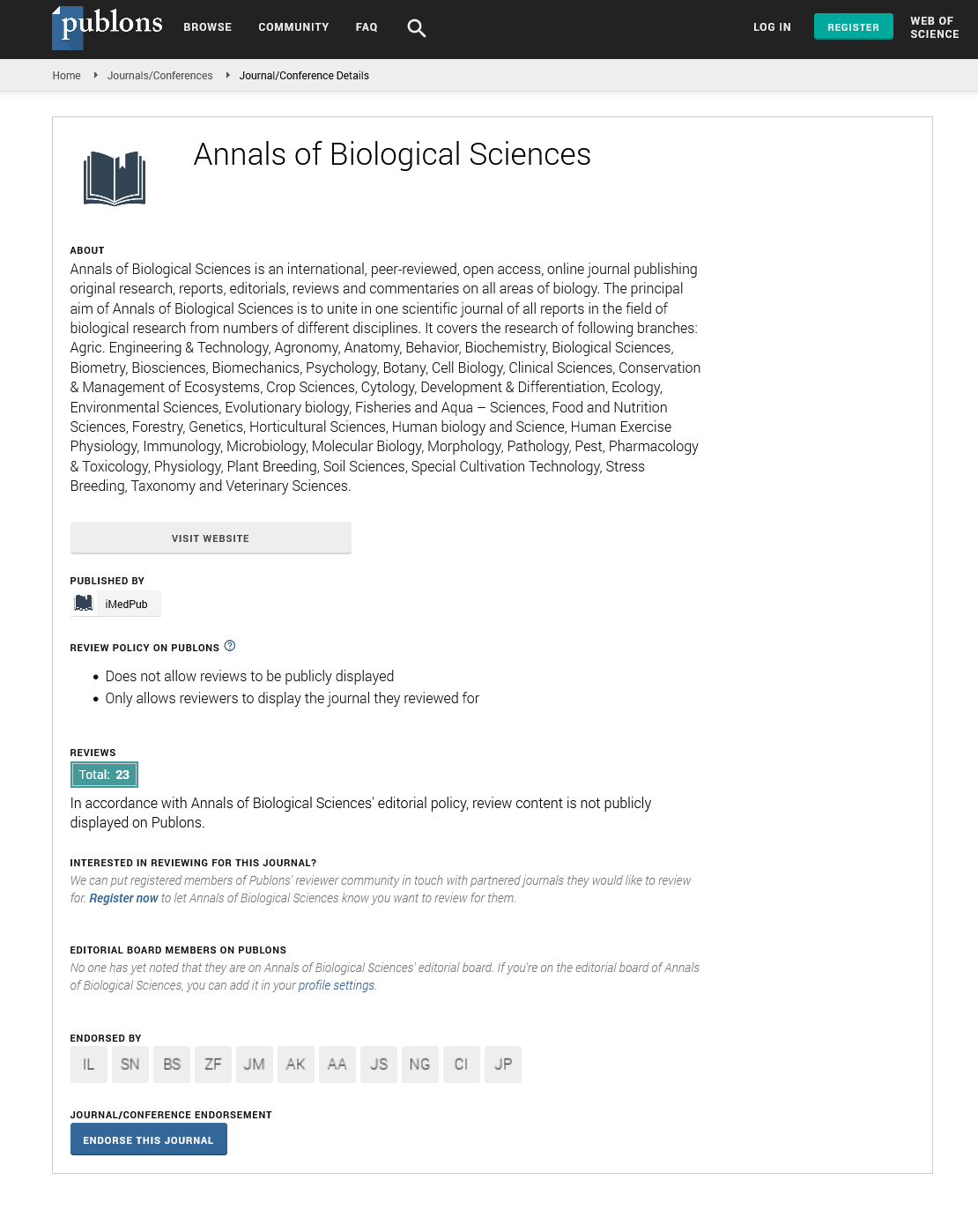ISSN : 2348-1927
Annals of Biological Sciences
Abstract
A Short Review Potential Biopesticide for Managing Pest of Shallot Spodoptera exigua Hübner (Lepidoptera: Noctuidae)
The beet armyworm (Spodoptera exigua Hübner) are the main pests of shallot plants in every growing season. The high attack of S. exigua in the vegetative phase yields a massive loss of up to 100%, causing inefficient farming. Synthetic insecticides have been extensively applied for pest management agriculture. However, this practice has been reported to cause environmental pollution, target organism resistance, and non-target organisms destruction. Researchers have paid a lot of serious attention and effort to develop biopesticides that can replace synthetic pesticides. This paper reviewed the use of several botanical biopesticides for controlling S. exigua, including Pangium edule, Derris elliptica, Alpinia galanga, Delphinium naviculare, Ocimum basilicum, and Rosmarinus officinalis. The review focuses on effectiveness, active compound content, and mode of action as a pesticide of each botanical biopesticide discussed.
Author(s): Nadya Sofia Siti Sa’adah
Abstract | PDF
Share This Article
Google Scholar citation report
Citations : 406
Annals of Biological Sciences received 406 citations as per Google Scholar report
Annals of Biological Sciences peer review process verified at publons
Abstracted/Indexed in
- Google Scholar
- China National Knowledge Infrastructure (CNKI)
- WorldCat
- Publons
- ROAD
- Secret Search Engine Labs
Open Access Journals
- Aquaculture & Veterinary Science
- Chemistry & Chemical Sciences
- Clinical Sciences
- Engineering
- General Science
- Genetics & Molecular Biology
- Health Care & Nursing
- Immunology & Microbiology
- Materials Science
- Mathematics & Physics
- Medical Sciences
- Neurology & Psychiatry
- Oncology & Cancer Science
- Pharmaceutical Sciences
